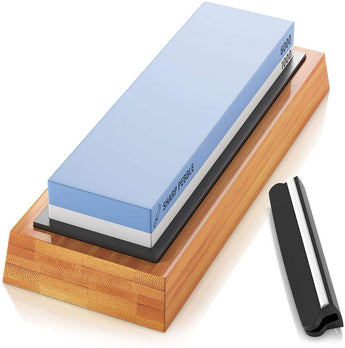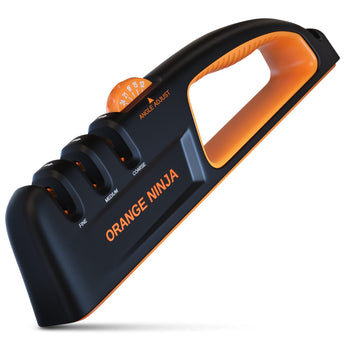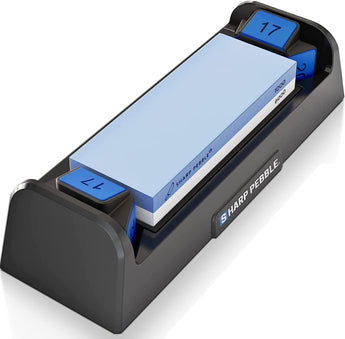
Sharpening chisels is a crucial task for woodworkers, carpenters, and hobbyists alike. The right sharpening stone can make a significant difference in the sharpness and durability of your chisels. With various types of stones available, it can be challenging to determine which is best suited for your needs. This blog post will explore the different types of sharpening stones and help you decide which one is best for sharpening your chisels.
Understanding Sharpening Stones:
Sharpening stones, also known as whetstones, come in various materials, each with unique properties. The primary types of sharpening stones are:
-
Oil Stones
-
Water Stones
-
Diamond Stones
-
Ceramic Stones
Oil Stones:
Oil stones are traditional sharpening stones that use oil as a lubricant to prevent metal particles from clogging the stone. They are typically made from novaculite, aluminum oxide, or silicon carbide.
-
Pros:
-
Durable and long-lasting
-
Provides a consistent sharpening surface
-
Suitable for general sharpening needs
-
Cons:
-
Requires oil for lubrication, which can be messy
-
Slower cutting speed compared to other stones
Oil stones are an excellent choice for those who prefer a low-maintenance, long-lasting stone. They are ideal for general-purpose sharpening but may not be the best option for those who need to quickly sharpen their chisels.
Water Stones:
Water stones are a popular choice among woodworkers due to their fast-cutting action and ability to produce a very sharp edge. These stones use water as a lubricant and come in two main types: synthetic and natural.
-
Pros:
-
Fast cutting speed
-
Produces a very sharp edge
-
Easy to clean with water
-
Cons:
-
Wears down more quickly than oil stones
-
Requires regular flattening to maintain a flat surface
Water stones are ideal for those who prioritize speed and sharpness. However, they require more maintenance than oil stones, as they wear down faster and need regular flattening to ensure consistent sharpening.
Diamond Stones:
Diamond stones are made by bonding diamond particles to a metal plate, providing an exceptionally hard and durable sharpening surface. They are available in different grit sizes, from coarse to ultra-fine.
-
Pros:
-
Extremely durable and long-lasting
-
Maintains a flat surface
-
Fast cutting speed
-
Cons:
-
Can be more expensive than other stones
-
May be too aggressive for some fine-tuning tasks
Diamond stones are perfect for those who need a reliable, long-lasting sharpening solution. Their fast cutting speed and flat surface make them ideal for quickly sharpening chisels. However, their aggressiveness may not be suitable for all sharpening tasks.
Ceramic Stones:
Ceramic stones are made from a mix of ceramic materials and are known for their hardness and durability. They provide a smooth sharpening surface and can be used dry or with water.
-
Pros:
-
Hard and durable
-
Produces a fine edge
-
Can be used dry or with water
-
Cons:
-
Slower cutting speed compared to diamond stones
-
Can be brittle and prone to cracking if dropped
Ceramic stones are an excellent choice for those who want a durable and versatile sharpening stone. They are suitable for producing a fine edge and can be used with or without water, offering flexibility in use.
Choosing the Right Stone for Your Needs
When selecting a sharpening stone for your chisels, consider the following factors:
-
Sharpening Speed: If you need to sharpen your chisels quickly, diamond and water stones are the best options. Oil and ceramic stones are slower but provide a consistent sharpening surface.
-
Durability: Diamond and ceramic stones are the most durable, while water stones wear down the fastest but they cut material fast also. Oil stones fall in between.
-
Cost: Diamond stones tend to be the most expensive, followed by ceramic, oil, and water stones. Consider your budget when choosing a stone.



